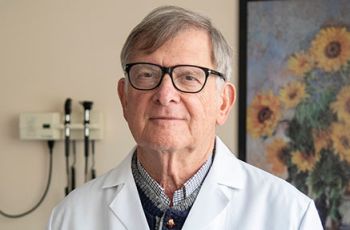Faculty in the Media
The Transportation Security Administration recently announced plans to overhaul passenger and cargo screening methods in the wake of the bomb plot from Yemen.
Improvised explosives are the weapon of choice for terrorists and will continue to be a threat because they are so difficult to detect.
Health providers and aid groups have mobilized to combat outbreaks of cholera in Haiti and Nigeria.
The George Washington University Medical Center recently named Anton N. Sidawy, M.D., M.P.H., former chief of surgical services at Veterans Administration Medical Center, chair of the Department of Surgery.
Since the earthquake in Haiti last January, public health experts expected infectious diseases, such as the recent cholera outbreak, to take hold as people worked to rebuild the country.
Alzheimer's affects more than 35 million people globally and is the sixth leading cause of death in the United States.
GW's Daniel Kaniewski, deputy director of the Homeland Security Policy Institute, says that by effectively marshaling and mobilizing all resources, whether they be foreign governments or private sector organizations from all over the world, Chile has handled the mining crisis much better than the…
The World Health Organization is calling on drug companies to donate more medicine to help to eradicate tropical diseases.
Ethical concerns arise when patients want to connect with doctors on social networks. GW's Katherine Chretien, M.D., associate professor of Medicine, worries that any communication with a patient on a public platform like Facebook could pose a violation of HIPPA.
U.S. and European security services are struggling to track Western nationals who travel abroad to receive training from Al-Qaeda and its allies and then return to try to carry out attacks.


